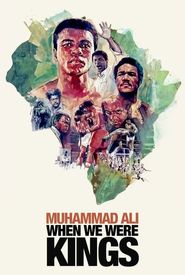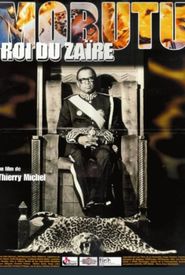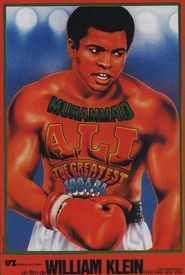Here is the requested response:
Mobutu Sese Seko was born Joseph Mobutu in Lisala, Belgian Congo. His father was a cook, who died when Mobutu was a child, and his mother was a maid in a hotel. She used her earnings to send him to a Christian Brothers Catholic boarding school for his education.
He joined the Force Publique, an internal security force of Congolese troops but with Belgian officers, and rose to sergeant. He stayed there for seven years, leaving to become a newspaper reporter. It was in that position that he met Congolese nationalist Patrice Lumumba, and Mobutu was so taken with him that he joined Lumumba's political party, the Congolese National Movement (MNC).
When the Congo became independent on June 30, 1960, a coalition government led the country, with Lumumba as Prime Minister and Joseph Kasavubu as President. Mobutu was appointed Army Chief of Staff. Lumumba and Kasavubu then locked horns in a struggle for political supremacy, and on Sept. 14, 1960, a military coup overthrew Lumumba and installed Kasavubu as overall leader.
One of the key figures in the coup was none other than Lumumba's old friend, Mobutu. It turned out that both the American CIA and the Belgian government mistrusted Lumumba, who they thought to be a Communist or at least pro-Communist, and wanted Kasavubu in power, as they believed - correctly, as it turned out - that Kasavubu and Mobutu would be more "pliable". Five years later, though, Mobutu led a coup against Kasavubu, who had just managed to oust his rival, popular Prime Minister Moise Tshombe.
Upon taking power, Mobutu banned all political parties and declared the equivalent of a state of emergency, taking on almost dictatorial powers. He later formed his own party, the Popular Movement of the Revolution, which all Congolese were obliged to join. He ordered all existing trade unions to form a single union, the National Union of Zairian Workers, and placed it under the control of the government.
Although there were several uprisings and attempted coups, all were swiftly and brutally put down. In 1970 Mobutu held an election in which he was the only candidate and in which voting was mandatory. Not surprisingly, he got 99% of the vote. In 1971 he began a program of "cultural awareness" and renamed the country the Republic of Zaire. He ordered all Congolese with Christian names to drop them and change to African ones, baptism of children was outlawed and Western-style clothing and ties were banned.
The next year he renamed himself Mobutu Sese Seko Kuku Nbendu Wa Za Banga, although for convenience's sake he allowed others to refer to him as Mobutu Sese Seko. He also fostered a cult of personality in which his picture appeared everywhere, on everything from postage stamps to the country's paper currency.
His erratic, corrupt and authoritarian rule resulted in several coup attempts and secessions. Mobutu's solution was to stage public executions of those who were real, potential or imagined threats to his regime, but he later found that it was much less trouble - and garnered much less bad publicity worldwide - if he just bought off his enemies, which he proceeded to do.
He also nationalized foreign-owned firms and deported their European owners and managers. He handed the firms over to his family members and political allies, most of whom immediately robbed the companies blind, sold off their assets and kept the money. The resulting economic anarchy caused by these actions forced Mobutu in 1977 to bring the Europeans back.
In that same year a force of several thousand rebels - followers of the executed Tshombe - invaded the province of Katanga from their bases in neighboring Angola. They were well-trained, motivated and led mainly by professional mercenaries from South Africa and Europe, and they swiftly and decisively routed Mobutu's ill-equipped, poorly trained, undisciplined and disorganized army.
He appealed for aid from France, which airlifted several thousand Moroccan paratroopers who eventually defeated the Katangan rebels. However, a year later the rebels attacked again, but this time with more troops than before. Mobutu's ragtag army fared no better this time than it did the year before and was decisively defeated again, with many of its soldiers tearing off their uniforms, throwing away their weapons and fleeing naked into the jungles.
Katanga, with its vast mineral, diamond and ore deposits, was on the verge of declaring its independence, and there was nothing Mobutu could do about it. Once more he appealed for international help against the "Communists". France and Belgium dispatched troops to put down the invasion, with the US supplying logistical and material help, and the invading forces were driven back


















